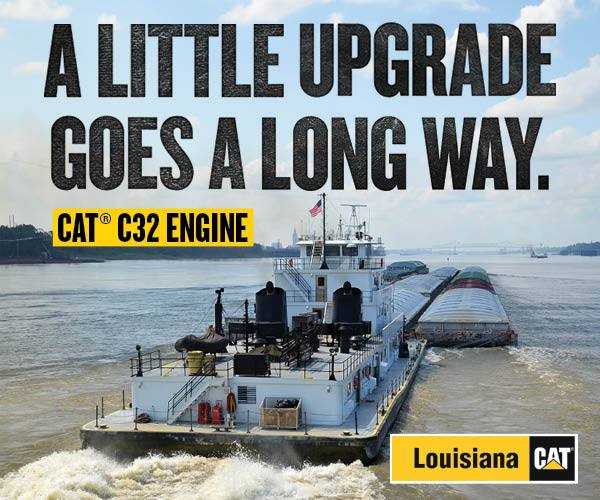Dredging Roundup Latin America
Nicaragua
Nicaraguan officials have announced they will begin dredging the San Juan River in response to what they are calling an ecological crime by their neighbor Costa Rica. The river forms the border between the two countries but has always been under Nicaraguan control. In December Nicaragua complained to the International Court of Justice and other international organizations that Costa Rica was violating treaties and damaging the river’s ecosystems by constructing a road close to its banks. Shortly thereafter Nicaraguan commander Eden Pastora announced they would dredge the river to remove the sediment dumped by Costa Rica the Prensa Latina reported.
Chile
In early January concessionaire Puerto Central of the Port of San Antonio issued its response to the environmental evaluation of its dredging project making headway toward its goal of expanding two of its wharves to accommodate post-Panamax ships Chilean government officials confirmed. Business News Americas reported that Puerto Central which operates the Costanera Espigón terminal in San Antonio planned to invest up to $320 million over 20 years at the port and expects to double the port’s container handling capacity at one of Chile’s busiest ports. One of Puerto Central’s first projects will be expanding wharves 4 and 5 from their current 10-meter (33-foot) depth to a 12-meter (39.4-foot) depth. The estimated 42800 cubic meters (55982 cubic yards) of sediment will be placed in an approved site off the coast. The project is expected to cost $10.7 million dollars.
Colombia
The flooding problems of Colombia’s two major rivers the Magdalena and the Cauca will be addressed in part by dredging the rivers’ basin elheraldo.co reports. Rainy seasons in recent years have caused the rivers to flood tens of thousands of hectares of agricultural land around them causing the deaths of more than 170 people just in the past few months. In late December Colombian president Juan Manuel Santos announced that the Dutch Embassy several companies and Colombian agencies had agreed to undertake a study of the rivers to better understand the rivers and how they are being affected by climate change. The basin the two rivers share will be dredged as part of the march toward a “definitive solution” to the problem Santos stated.
Mexico
Port operator APM Terminals has won a contract to construct a new deepwater container terminal in Lazaro Cardenas an oceanside city in Michoacán Mexico on the Pacific Coast. The new terminal will be the closest port with rails to Mexico City. The company has promised a $900 million investment in the port over the life of its 32-year contract. The first phase of the project estimated to be complete in 2015 will include construction of a 43-hectare (106.3-acre) container yard 650-meter (2133-foot) wharf with two berths warehouses and on-dock rail facilities meant to ease transport to Mexico’s capitol and other cities. Future phases would include two more berths and a larger quay. The project is expected to produce 900 jobs during the construction phase and 550 jobs during the operation phase. In a Dec. 29 statement announcing the contract APM Terminals CEO Kim Fejfer stated “We simply believe strongly in the Mexico market.”
Brazil
Dredging is expected to resume this month in Brazil’s Port of Santos one of the largest ports in Latin America. The Jornel A Tribuna (atribuna.com.br) reports that the port began dredging last year to increase its capacity from 13 meters (42.6 feet) to 15 meters (49 feet) deep.
Environmental contamination concerns forced the port to slow their work on the last section. However Brazil’s environmental agency has recently cleared the way for the dredging to begin again and the port is now waiting the arrival of the two dredges that will complete the work: the Xin Hai Feng expected to arrive by the end of January and the Hang Jung 5001 expected to dock in February. The project delayed since September is now expected to be complete in May.
The International Association of Dredging Companies will host its International Seminar on Dredging and Reclamation in Recife Brazil on March 19 through 23 this year. The seminar is aimed at ports harbor facilities governments off-shore companies and other decision makers and will address the execution of dredging projects as well as new equipment and state-of-the-art techniques. It will include a site visit to a dredging project in Brazil.



